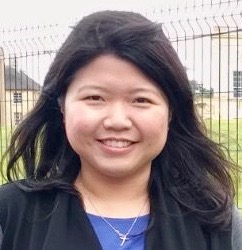“Read the news with a Bible in hand,” urges World Vision International director who works in conflict areas
Ng Jing Yng // January 18, 2020, 4:15 pm
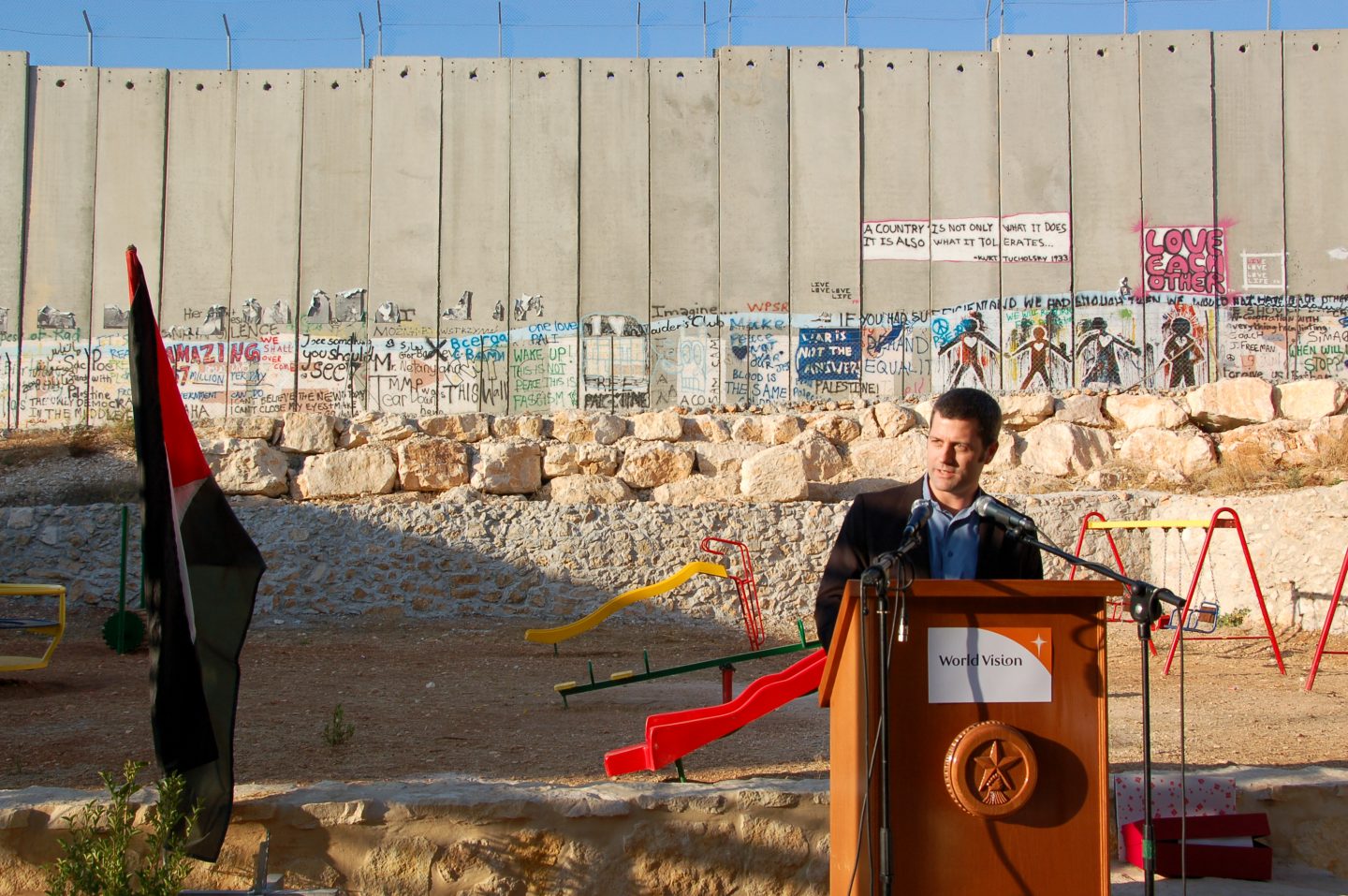
World Vision International's Peacebuilding Director, Matthew Scott, congratulating Wi’am Center in Bethlehem for receiving the second annual World Vision International Peace Building Award. All photos courtesy of World Vision International.
Home nine years ago, was her children running freely around the neighbourhood, with a secure roof over their heads.
Home today, is a family of seven huddled together in a tent the size of a two-room flat. Occasionally, the family can also hear the pitter-patter of a rat scurrying across the roof as the winter cold engulfs them.
Notwithstanding these harsh conditions, the mother in the household is determined to find schooling for all of her five children.
She hopes her children can finish up their studies to find gainful employment and fulfil their dreams. One of her sons wants to be an astronaut when he grows up.
Hope, as World Vision International Senior Director of Fragile Context, Matthew Scott, pointed out in an interview with Salt&Light, is the invisible force that propels people through the most difficult time.
And regardless whether the people he has met are of the Christian faith, he believes that God’s hand is on each individual as he or she attempts to rise above difficulties.

Scott (extreme left) at a Rutshuru Area Recover Programme visit. (L-R) Matthew Scott, World Vision International; Christian Kasaleka, ARP Manager, World Vision DRC; members of the Water Management Committee.
“Some of the people in dire circumstances are among the most generous and cheerful. It defies logic. I believe that these people are held up by God’s spirit to persevere,” he said.
Scott, who is a veteran in the humanitarian sector focusing on child rights and peace-building efforts, was recently in Singapore to meet with supporters and to explain the work of World Vision in conflict areas.
The Canadian’s travels have run the gamut of experiences, from advocating for young people to be included in high-level peace negotiations to having a gun pointed at his head in Angola.
In the course of his work, he has observed that “the frequent misconception is that it (the situation) is hopeless, and nothing can be done. But hope is still alive in these circumstances”.
Black Friday before Resurrection Sunday
Scott, who was born into a Christian family and professed the faith as his own during his teenage years, encounters atrocities frequently as he visits war-torn areas. However, he holds a firm belief that suffering is not at odds with Christianity.
The Christian faith is not just about victories, he pointed out. The walk of faith is riddled with pain and challenges too. This is something that Christians must be cognisant of – he is concerned that churches today are only spotlighting the win at the end.
“Churches do not always pick up on (suffering) and move on to victory in Jesus. But we have to go through the Good Friday of loss and darkness before the triumph event.
“Resurrection is best appreciated once we have gone through Good Friday,” he added.
Hope and trust
The self-proclaimed “unstoppable optimist” urged fellow believers not to sidestep the issue of suffering but to look at it squarely through the lenses of faith, and to be eventually convinced that such apparent evil is not part of God’s plan.
After all, Jesus himself also confronted all kinds of injustice during his time on earth including meeting with those who are ill, paralysed or harshly persecuted for their beliefs.
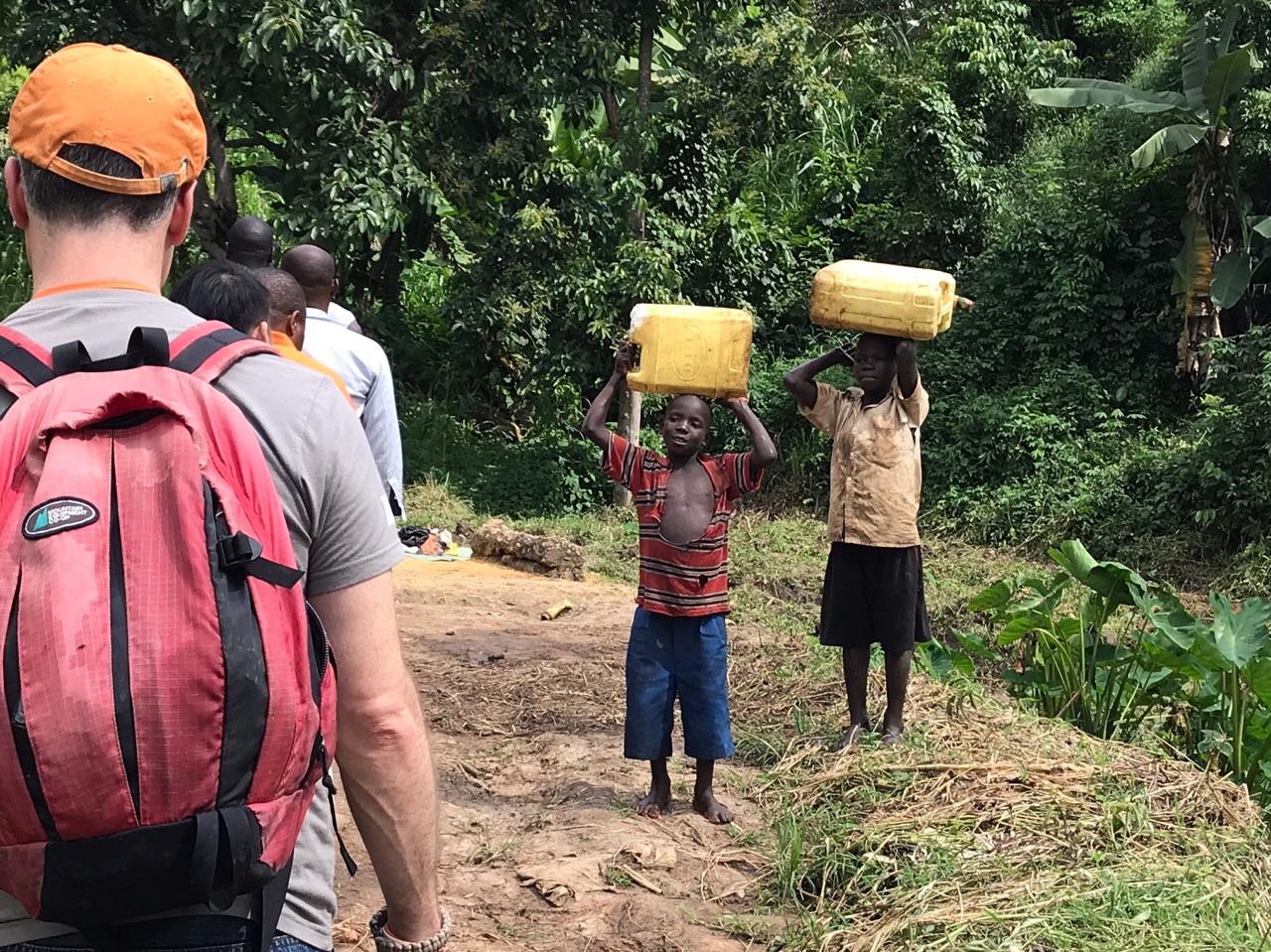
Children retrieving water from a well in Rutshuru ARP.
“Jesus didn’t pretend these things didn’t exist” and Jesus himself wept at the death of his friend, Lazarus (John 11:35), he noted.
He does get frustrated from time to time by the human cruelty that he sees on a regular basis.
He urges believers not to sidestep the issue of suffering but to look at it squarely through the lenses of faith.
“I do rail at God,” said Scott, who cited prayer and Bible reading as his key anchors in life. “But the truth is that God is the powerful King who is bringing a new kingdom and I have limited vision and sight that cannot see all that is happening.”
The Scripture that he hangs on to is Psalms 10 which chronicles the Psalmist’s lament at God’s seemingly absence in the face of oppression. The Psalm ends with the author expressing faith in God to carry out eventual justice and to be close to the broken-hearted.
Likewise, this indefatigable hope in God to right the wrongs and trust in His sovereignty, are highly essential, particularly for aid workers like himself, as jadedness and scepticism remain very real issues in the humanitarian sector, he said.
Building relationships
Peers from other organisations often remark that World Vision staff seem to carry a sense of hope even in the bleakest situation.
“Hope is the hallmark of Christians,” said Scott, who noted that carrying such a hope also allows the local communities to see that World Vision workers are in for the long run and will never give up on them even when the going gets tough.
“Hope is the hallmark of Christians.”
Nevertheless, the strong Christian beliefs which outline World Vision’s approach do not simply translate to preaching the Good News to local communities. Often, it means reflecting the Christian faith while respecting others and serving the needy regardless of their background.
For instance, he recalled a highly-charged incident in the Central African Republic where different religious groups were facing off against each other.
World Vision was then the largest food distribution partner in the country, but a large chunk of effort was spent on engaging the local leaders to help them understand that World Vision’s commitment is to serve the most vulnerable children first.
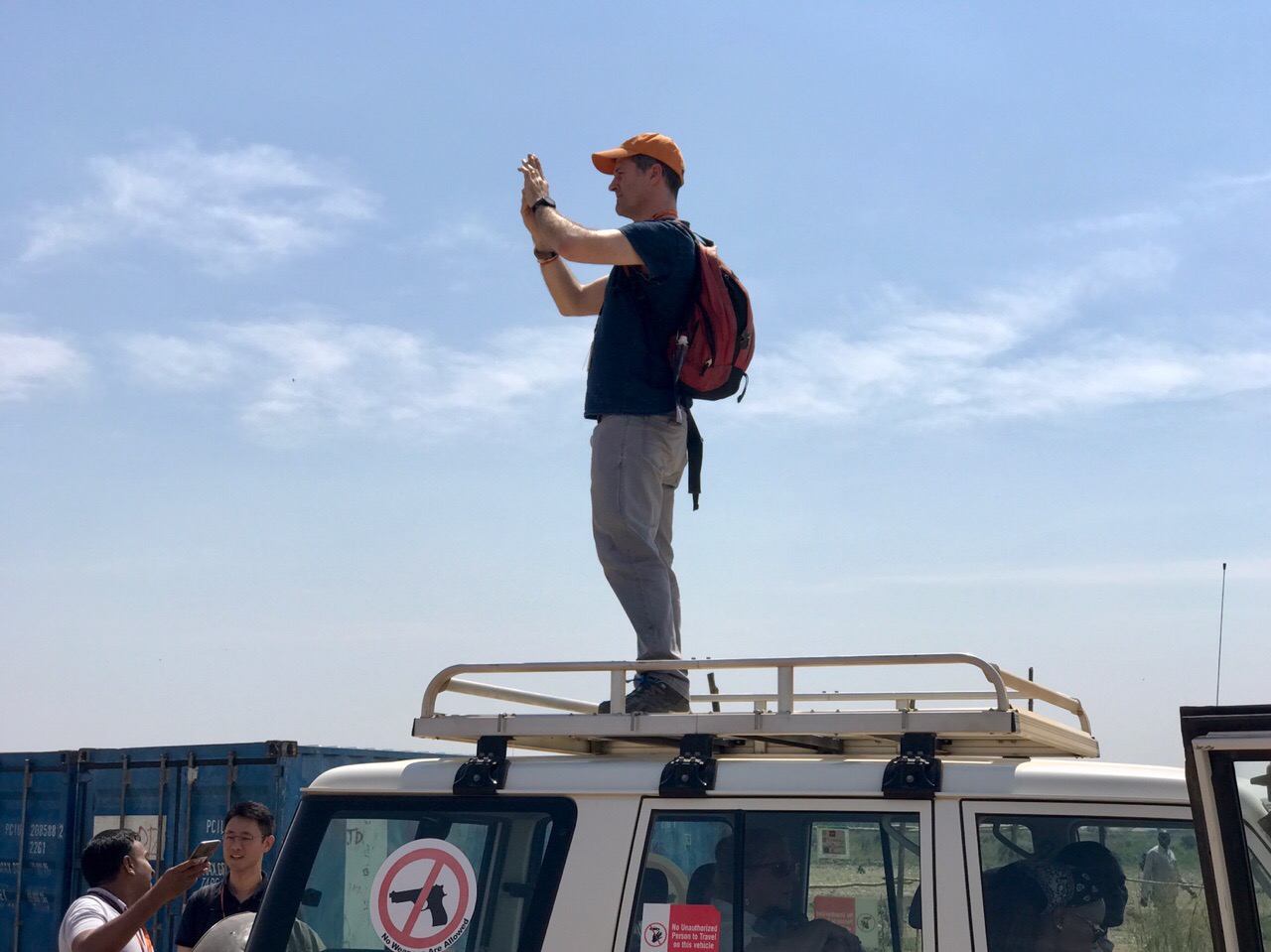
Scott, World Vision International’s Fragile Contexts Initiative Leader, stands on a vehicle overlooking Mangaten settlement. (L-R) Dilshan Annaraj, Associate Director of Peacebuilding, and Sunghyun Lee, WV Korea HEA Specialist.
These conversations with the local leaders stood the World Vision team in good stead as the food aid which eventually arrived was only half of what was needed. Previously, there had been riots as the people thought there would be unfair distribution of food based on their religion.
Thankfully, the trust built up between World Vision and the local community allowed for food to be dispensed to the neediest first and the local leaders agreed to return the next day to collect the next batch of food aid.
“We recognise that the needs are acute, but relationships are also important, and our approach is not to buy in to divisions and stereotypes on the ground,” said Scott.
Kicking at the darkness
While there seems to be an anti-religious culture in mainstream society today, Scott said he believed that the tide has been turning over the last decade. Governments are realising that the most needy and vulnerable often carry faith beliefs, and faith-based organisations are best able to understand the mindset of those they are trying to help.
Everyone can play a part to help the vulnerable, he said – one does not necessarily need to be out in the field or be engaging in high-level negotiations with government leaders.
For a start, he called on believers to keep seeking God, even as news of exploitation and cruelty bombard headlines every day, suggesting that believers “read the newspaper with a Bible in hand”.
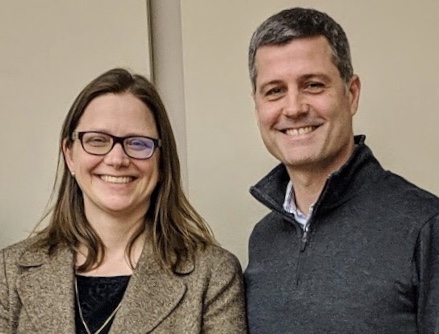
When reading the news, ask God: “Where are you in this?” and “How would you have me involved in what You are doing in these places?” urges Scott, seen here with his wife.
And instead of swiping away to read the next happy thing, ask God: “Where are you in this?” and “How would you have me involved in what You are doing in these places?”
Borrowing the lyrics of Canadian Christian singer-songwriter, Bruce Cockburn, he urged Christians to “kick at the darkness until it bleeds daylight”.
We are an independent, non-profit organisation that relies on the generosity of our readers, such as yourself, to continue serving the kingdom. Every dollar donated goes directly back into our editorial coverage.
Would you consider partnering with us in our kingdom work by supporting us financially, either as a one-off donation, or a recurring pledge?
Support Salt&Light